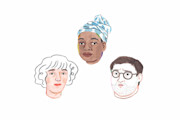For years there’s been a stigma among Black Americans and communities of color when it comes to mental health support and seeking therapy.
Whenever the topic of therapy or counseling comes up, you might hear: “Therapy is for white people,” or “What're you depressed about—you have a roof over your head!” or “Just get over it.”
The top mental health concerns for Black people are depression, anxiety, post-traumatic stress disorder, and psychological stress.
While the latter two statements can easily be identified as gaslighting or ignoring a plea for help, the first might have some kernel of truth to it.
Therapists play an important role in helping Black Americans cope with and heal from racial stress, trauma, and PTSD in addition to other common mental health concerns such as depression, grief, anxiety, ADHD, relationship issues, stress, and much more.
How are we supposed to support #BlackGirlMagic and #BlackBoyJoy if we don’t have more therapists to help us?
The state of Black Americans' mental health in 2020-2022
Today, only 4.7% of psychologists and 4% of therapists are African American in the U.S.
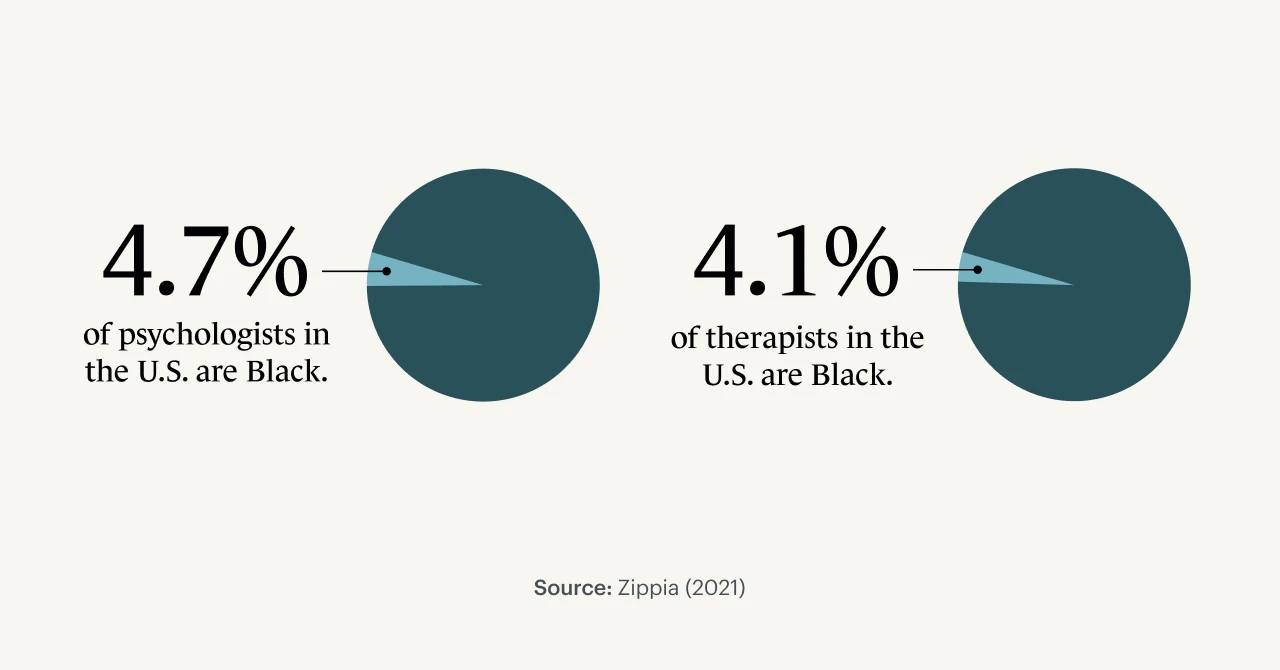
Over 17% of African American adults experience mental illness each year, according to the National Alliance on Mental Illness (NAMI).
According to the Health and Human Services Office of Minority Health (OMH), Black Americans are more likely than White Americans to report persistent symptoms of emotional distress, such as sadness, hopelessness, and feeling like everything is an effort.
The top mental health concerns for Black people are depression, anxiety, post-traumatic stress disorder, and psychological stress.
The main issues when it comes to addressing the mental health concerns for Black Americans are social stigma and validation, empathy, and accessibility.
Factors such as poverty, exposure to violence, having their emotions invalidated, socio-economic disparities, and racism are among the top reasons for mental health issues for Black Americans.
Additionally, recent shootings of Black Americans, along with national lockdowns and isolations caused by the COVID-19 pandemic may have caused unseen trauma that won’t surface for years later.
In 2020, only 37% of African Americans with any mental illness received help (as compared to 51% of non-Hispanic White Americans with mental illness who received help during 2020).
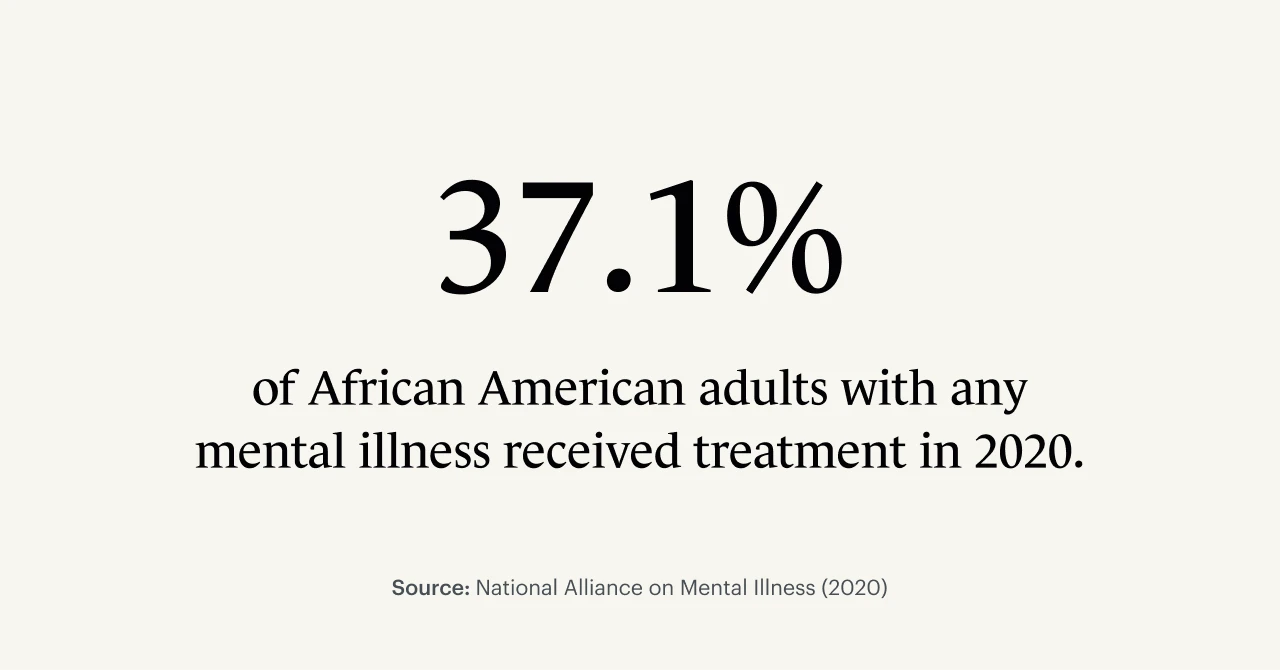
Mental health concerns specific to Black Americans
The main issues when it comes to addressing the mental health concerns for Black Americans are social stigma and validation, empathy, and accessibility.
While the Black community has made strides to improve its attitude towards mental health issues, there’s still a slight stigma associated with admitting and seeking help.
Some African Americans lacked emotional support and validation from a young age.
Growing up as a Black American, I experienced unhealthy beliefs that acted as poor coping mechanisms such as: “Grow a thicker skin,” “You need to pray more,” and “Other people have it harder than you, so be thankful.”
Instead of helping us, these phrases traumatized us.
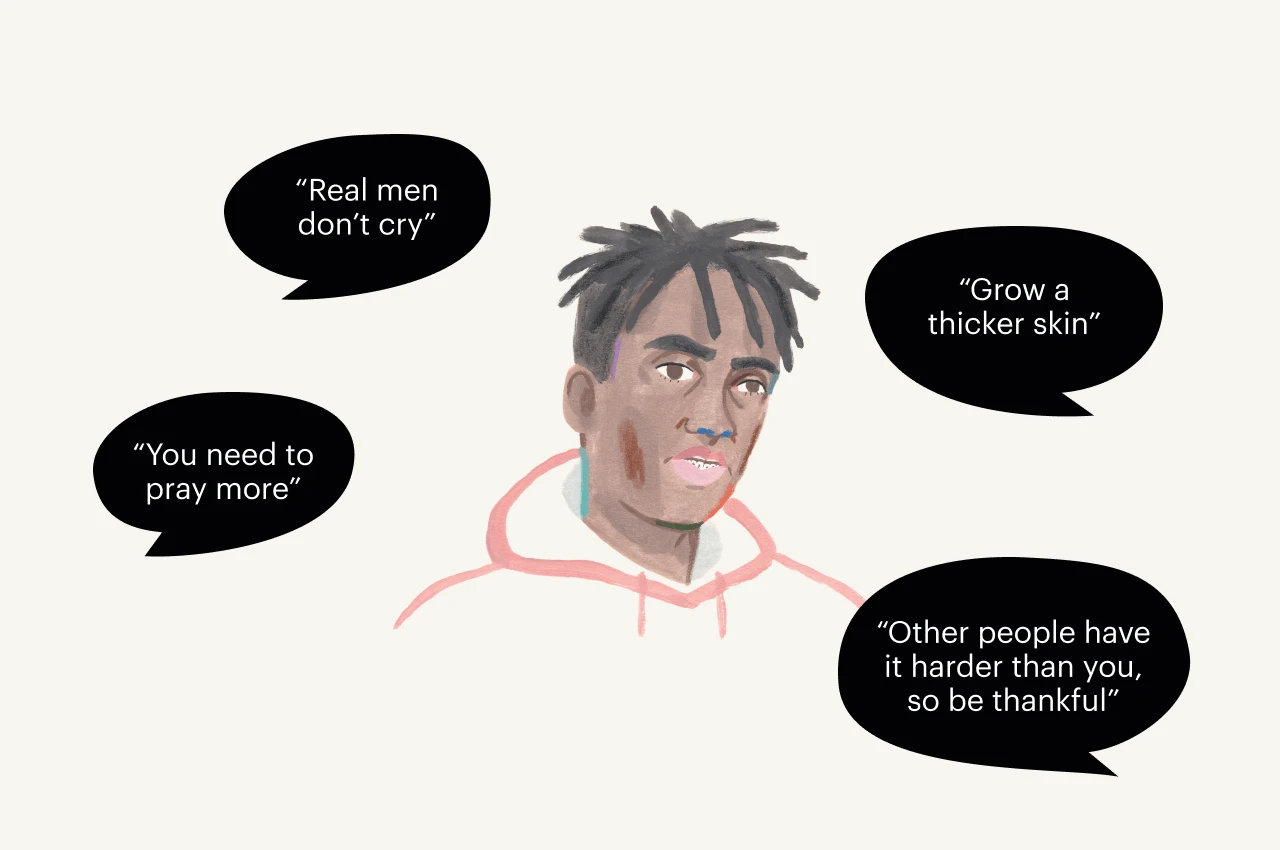
It’s hard to admit you need help when you’re conditioned to believe no one can or will help you.
The requirement to always be seen as a strong, resilient person has led Black people to believe that admitting you need help is an omission to weakness, and therefore shame.
Or worse, being labeled as “crazy.”
We need someone to say, “We see you, we hear you and we’re here for you.”
Black people need to know that it’s normal to have mental health concerns, and that those concerns are valid.
We need to know it’s okay to talk about how we feel and not be scrutinized or judged for those feelings.
We need someone to say, “We see you, we hear you and we’re here for you.”
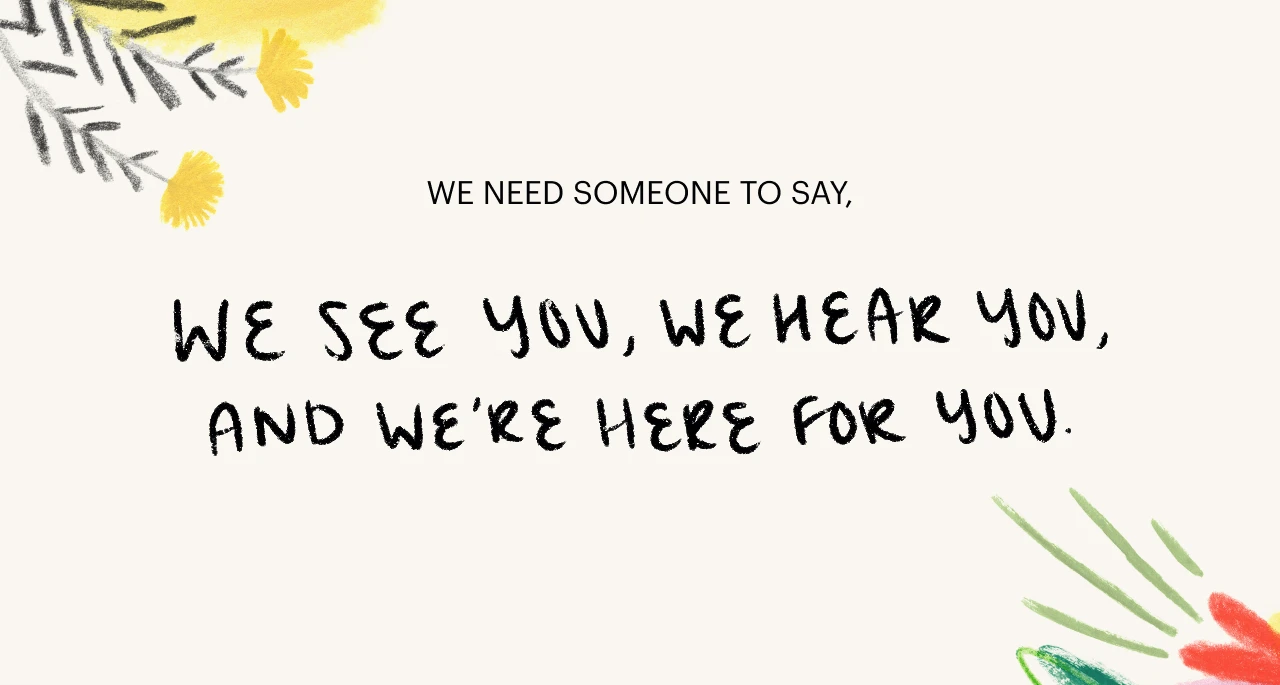
Why we need more Black therapists
For therapy to become a welcoming place for Black people, we need more Black therapists.
It’s no secret that people are more likely to empathize with someone who looks like them.
It can also be advantageous when that person already has lived experience with a patient’s racial or ethnic, cultural or socioeconomic background.
Black people need therapists who are culturally responsive to our needs.
For example, if I’m in a session and I tell my therapist that I was told my braids were unprofessional by a coworker or colleague, at no point during that session do I want to explain why it is offensive or why I wear braids and then defend my feelings on the matter.
Or worse yet, if the therapist is unable to understand my experience, I may feel like I’m being gaslit by someone who is supposed to help me.
Black people shouldn’t need to act as Black encyclopedias, explaining everything to everyone about Black culture, in order to get the help they need. It's time consuming and unfair.
There’s also an issue with racial bias when trying to get an appointment with a therapist.
Studies have shown that Black people are less likely to receive follow-ups for making an appointment when compared to their White counterparts.
Black therapists, psychologists, psychiatrists, and counselors provides a safer, more welcoming space for Black people seeking therapy.
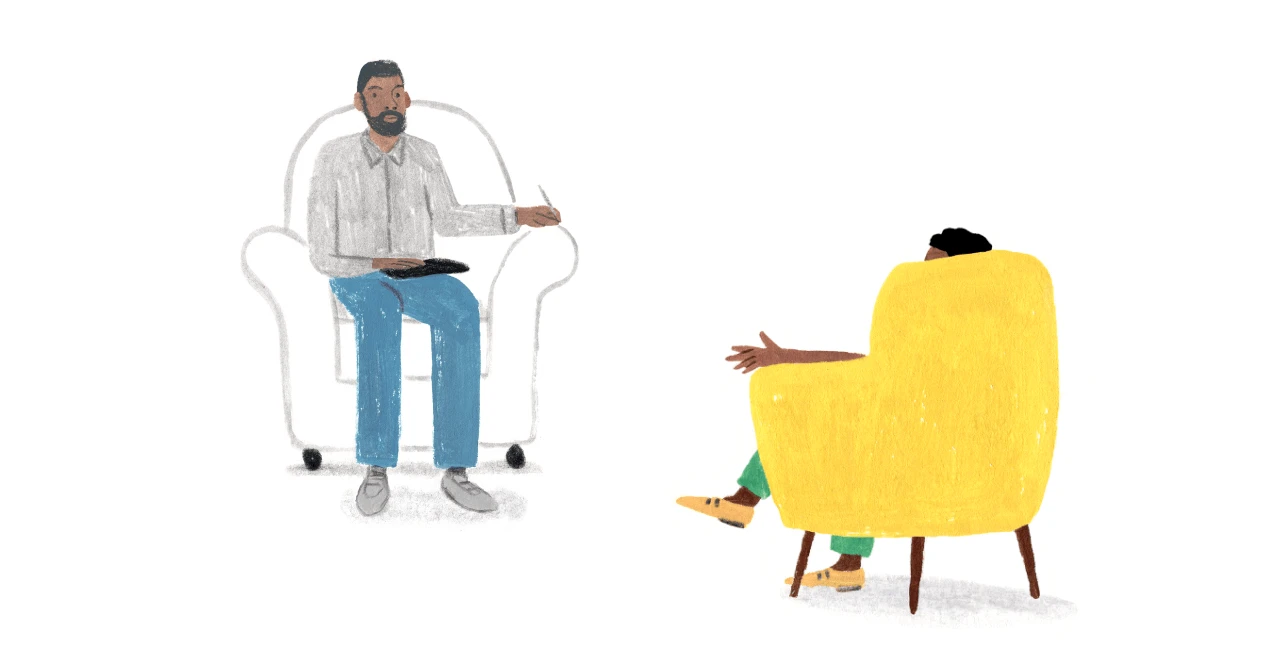
How to find a Black therapist near you
The Monarch Directory by SimplePractice makes it easy to search for a therapist by areas of specialty, insurance, location, and more.
You can even view open availability in a therapist’s schedule and request an appointment online, often without ever having to pick up the phone.
If you want to find “a black therapist near me” you can enter your location and narrow down your selections from there.
For example, if you’re looking for a Black therapist in LA, you can use Monarch’s directory to browse all the therapists in Los Angeles and choose a Black mental health practitioner such as Kamisha Ford, Jasmynn Smith, and others.
You can also filter your search by keywords like "anxiety,” “depression,” or “grief.” For example, you can view all therapists in Oakland who specialize in depression. Then view Sherice Youngblood, Sonya Brewer, and more.
Questions to ask your therapist (of any background) to ensure they're sensitive to your needs
To make sure you're getting the help you need, here are some questions you can ask your therapist (of any background).
Remember, you’re completely valid in asking these questions and in no way should feel bad for asking. When your mental health is on the line, every precaution should be taken.
Have you ever had a patient with my background?
Are you knowledgeable about my culture and are you aware of any biases or misconceptions you may have about it that could affect my treatment from you?
How have you handled clients that have had issues with racism, discrimination, homophobia, or religion?
Are you uncomfortable speaking about matters concerning race, sexuality, identity, or suicide?
Are you open to feedback?
What type of therapy do you provide?
What insurance do you accept? What are your payment plans?
Ready to find a therapist who meets your needs? The Monarch Directory by SimplePractice makes it easy to find the right therapist no matter what your background and needs are.
READ NEXT: How to Find a Therapist Who Accepts Your Insurance
Searching for a great therapist? Check out the Monarch Directory to find therapists near you with availability and online booking.






